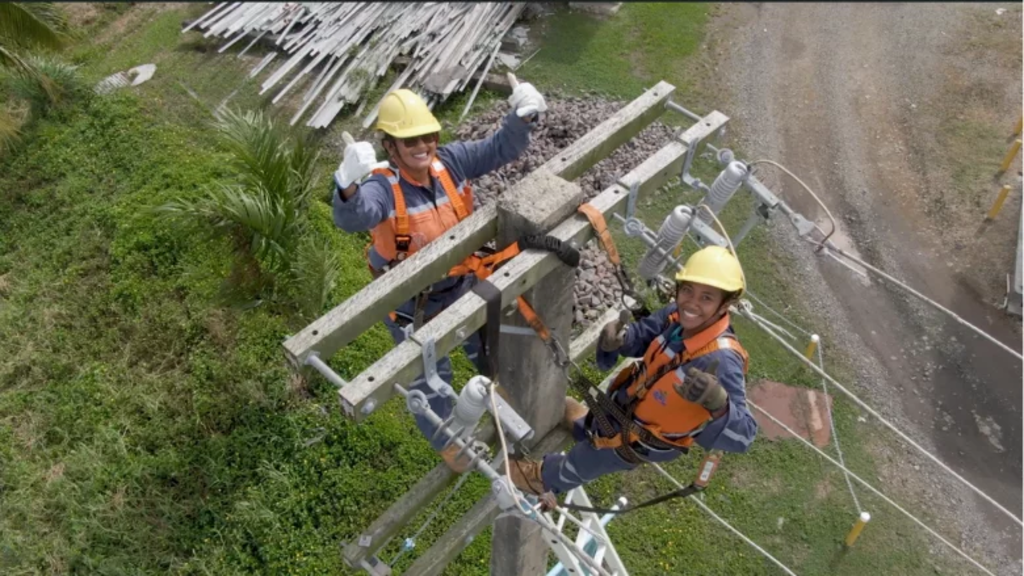Fiji stands to boost its GDP per capita by a staggering 30 per cent by closing the gender gap in employment, according to the World Bank latest Pacific Economic Update.
But entrenched barriers, from childcare shortages to workplace discrimination are holding back half the nation’s talent pool, especially in critical sectors like energy.
The cost of female exclusion
The title of the paper titled, Employ Women, Empower the Pacific: A Strategy for Uncertain Times underscores a sobering fact for Pacific Island Countries (PICs), including Fiji, which are set to lose billions in potential growth due to low female labour force participation (FLFP).
While Fiji’s female workforce participation of 42.7 per cent slightly trails the regional average (53.7 per cent), the untapped potential is immense.
Closing Fiji’s gender employment gap could lift GDP per capita by 30 per cent – the third-highest potential gain in the Pacific.
When women earn equally, household incomes surge, poverty drops, and investment in children’s education increases.
Fiji’s energy sector exemplifies the challenge as women make up just 15.7 per cent of staff at Energy Fiji Ltd and a mere 3.9 per cent hold vital STEM (Science, Technology, Engineering, Math) roles which are critical for the renewable energy transition.
Clearly, Fiji can no longer afford to ignore 50 per cent of its working population.
Investing in women isn’t just the right thing to do, it’s an economic imperative to drive and create sustainable growth.
Why are women locked out?
The barriers are complex and deeply rooted.
Fiji leads the region with 14 weeks of paid maternity leave, but lacks paid paternity leave and affordable childcare.
Women spend nearly three times more hours on unpaid care work than men.
“Without childcare, many women simply can’t enter or stay in demanding fields like energy,” the report notes.
Only Fiji and Kiribati have laws against workplace sexual harassment in the Pacific.
Discriminatory laws still restrict women from certain industrial jobs in Fiji.
Deep-seated social norms persist.
Surveys show strong beliefs that energy jobs are “too physical,” fieldwork is incompatible with family life, and mothers “should only work if necessary.”
While Fijian women often achieve higher education levels, they remain underrepresented in STEM.
Safety is a major concern as 29 per cent of Fijian women feel unsafe walking alone at night, compared to 11 per cent of men, impacting commutes to work.
Spotlight on the energy sector
Fiji’s push for renewable energy targets demands skilled workers.
Yet, the energy sector which is traditionally male-dominated, struggles to attract and retain women.
Women hold only 18.6 per cent of jobs across Pacific power utilities.
In technical roles (65 per cent of energy jobs), this plummets to 5.2 per cent.
61 per cent of Pacific energy leaders acknowledge male-dominated workplace cultures can feel unwelcoming or hostile to women.
Only half of utilities provide separate sanitation facilities for women.
Few utilities offer targeted internships, scholarships, or mentorship for women.
Retention policies like flexible hours (72.7 per cent) exist, but supportive childcare and robust parental leave are rare.
“The energy transition needs all hands on deck,” said Miriama Taoi a local engineering student.
“Excluding women isn’t just unjust; it’s sabotaging our clean energy future and economic resilience.”
Powering up women’s potential
The report offers a roadmap for Fiji, and the region should start with universities and energy companies funding STEM scholarships for girls.
Launch targeted apprenticeships and recruitment drives showcasing female role models in energy.
Implement paid parental leave (for both parents), expand affordable, quality childcare (onsite or via subsidies), and promote flexible work options.
Strengthen laws against discrimination and harassment. Mandate pay transparency. Make workplaces safe and inclusive (proper lighting, women’s PPE, safe transport).
Utilities must adopt concrete gender strategies with targets and accountability.
Public campaigns challenging stereotypes about “women’s work” and highlighting successful women in STEM and energy are crucial.
The bottom line is that Fiji’s prosperity hinges on harnessing the full potential of its women. Investing in childcare, smashing workplace barriers, and actively recruiting women into growth sectors like energy isn’t just the right thing to do, it’s the smartest economic strategy for a brighter, more resilient future.



